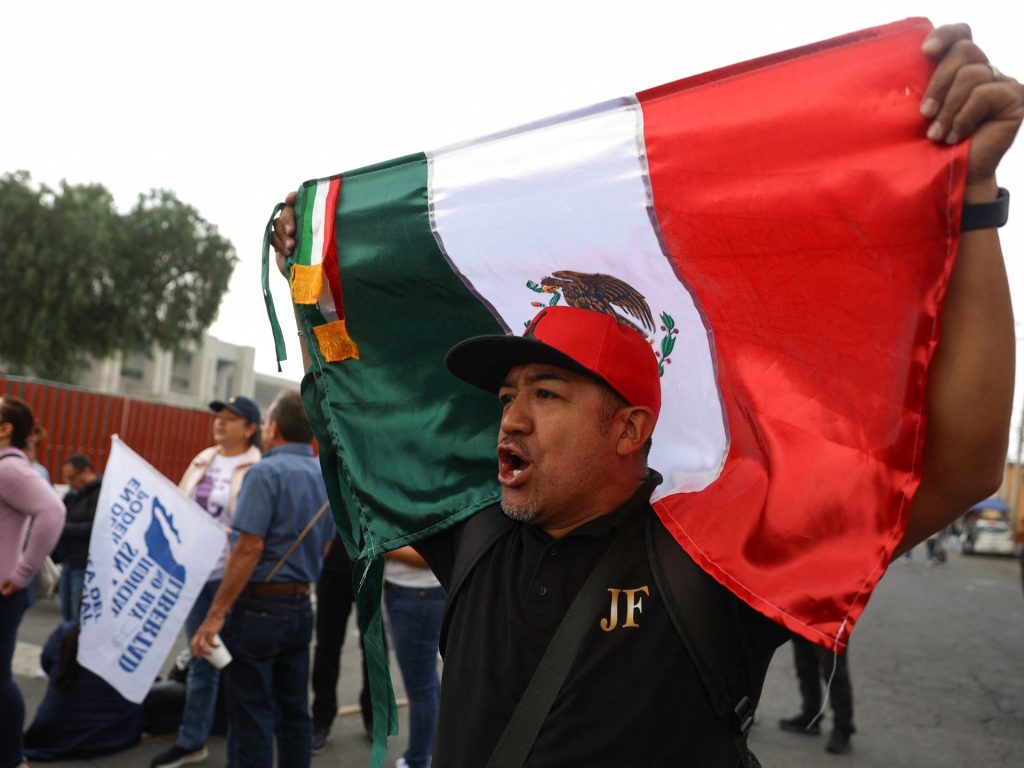Mexican demonstrators have been vehemently opposing controversial judicial reforms proposed by the ruling Morena party and President Andres Manuel Lopez Obrador. The reforms include the direct election of judges, a move that critics argue will lead to increased political influence over the judiciary, potentially undermining the country’s democracy. Opponents are concerned that allowing the party with the majority to control the judicial branch will compromise the independence and professionalism of the judiciary.
The ongoing protests in Mexico City have seen judiciary workers blocking access to key government buildings, including the Supreme Court and Congress. The striking workers are determined to prevent the government from moving forward with the reforms, which they believe will have far-reaching repercussions for the country’s legal system. Demonstrator Javier Reyes, a federal court worker, expressed concerns that the reforms could lead to the downfall of democracy in Mexico, as they would give the ruling party excessive control over the judiciary.
President Lopez Obrador has defended the judicial reforms as a necessary measure to combat corruption within the legal system. He asserts that the changes will help increase transparency and accountability within the judiciary, ultimately leading to a more efficient and fair legal system. Despite the president’s justifications, the protests have only intensified, with demonstrators and striking judiciary workers adamant in their opposition to the proposed reforms.
In a significant show of solidarity, the justices of the Supreme Court voted to join the strike, reflecting the widespread discontent among members of the judiciary. The decision to halt work and participate in the protests was supported by a majority of the justices, with eight out of eleven voting in favor of the strike. This move further underscores the growing opposition to the reforms within the legal community and highlights the concerns about the potential consequences of the changes on the independence of the judiciary.
The standoff between the government and judiciary workers continues to escalate, with both sides refusing to back down. The persistent protests and strikes indicate the deep-rooted apprehensions surrounding the proposed reforms and the perceived threat to the rule of law in Mexico. As the country prepares for a transition of power with the upcoming presidential elections, the fate of the judicial reforms remains uncertain, with opposition to the changes showing no signs of abating.
The demonstrations in Mexico City represent a critical juncture in the country’s political landscape, with the judiciary emerging as a key battleground in the ongoing struggle for democratic principles and institutional integrity. The protests underscore the importance of an independent judiciary in upholding the rule of law and ensuring accountability within the government. As the protests continue to garner support from various sectors of society, the outcome of the standoff between the government and judiciary workers will have far-reaching implications for the future of Mexico’s legal system and democratic institutions.















